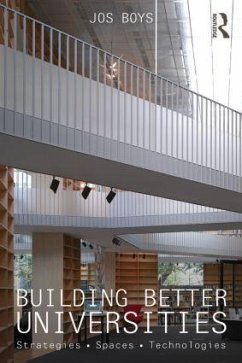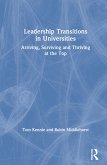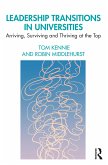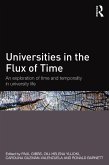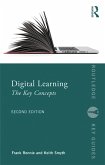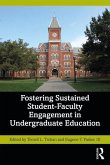Building Better Universities provides a wide-ranging summary and critical review of the increasing number of groundbreaking initiatives undertaken by universities and colleges around the world. It suggests that we have reached a key moment for the higher education sector in which the services, location, scale, ownership, and distinctiveness of education are being altered dramatically, whether universities and colleges want it or not. These shifts are affecting traditional assumptions about both the future 'shape' of higher education institutions, and the roles of-and relationships between-learners, teachers, researchers, managers, businesses, communities and other stakeholders. Building Better Universities aims to bridge the gap between educational ideas about what the university is, or should be 'for', and its day-to-day practices and organisation. It roams across strategic, operational, and institutional issues; space planning and building design; and technological change, in order to bring together issues that are often dealt with separately. By analysing the many challenges faced by higher education in the contemporary period, and exploring the various ways universities and colleges are responding, this powerful book aims to support a 'step-change' in debates over the future of higher education, and to enable senior managers and faculty to develop more strategic and creative ways of enabling effective twenty-first-century learning in their own institutions.
Hinweis: Dieser Artikel kann nur an eine deutsche Lieferadresse ausgeliefert werden.
Hinweis: Dieser Artikel kann nur an eine deutsche Lieferadresse ausgeliefert werden.

